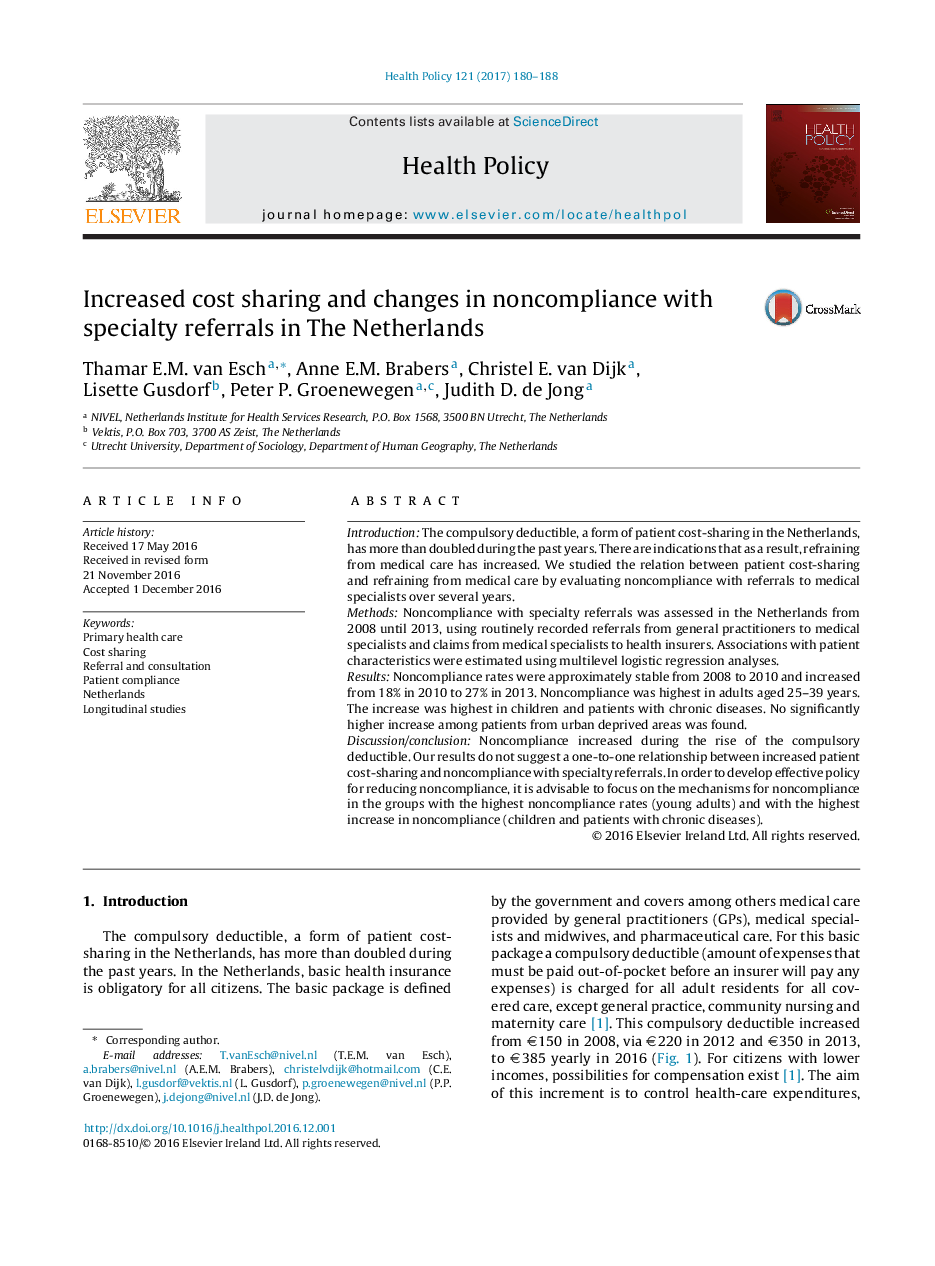| کد مقاله | کد نشریه | سال انتشار | مقاله انگلیسی | نسخه تمام متن |
|---|---|---|---|---|
| 5723505 | 1411453 | 2017 | 9 صفحه PDF | دانلود رایگان |
- Noncompliance increased during the rise of cost sharing.
- Noncompliance increased most in children and patients with chronic diseases.
- No one-to-one relationship between increased cost sharing and noncompliance is found.
IntroductionThe compulsory deductible, a form of patient cost-sharing in the Netherlands, has more than doubled during the past years. There are indications that as a result, refraining from medical care has increased. We studied the relation between patient cost-sharing and refraining from medical care by evaluating noncompliance with referrals to medical specialists over several years.MethodsNoncompliance with specialty referrals was assessed in the Netherlands from 2008 until 2013, using routinely recorded referrals from general practitioners to medical specialists and claims from medical specialists to health insurers. Associations with patient characteristics were estimated using multilevel logistic regression analyses.ResultsNoncompliance rates were approximately stable from 2008 to 2010 and increased from 18% in 2010 to 27% in 2013. Noncompliance was highest in adults aged 25-39 years. The increase was highest in children and patients with chronic diseases. No significantly higher increase among patients from urban deprived areas was found.Discussion/conclusionNoncompliance increased during the rise of the compulsory deductible. Our results do not suggest a one-to-one relationship between increased patient cost-sharing and noncompliance with specialty referrals. In order to develop effective policy for reducing noncompliance, it is advisable to focus on the mechanisms for noncompliance in the groups with the highest noncompliance rates (young adults) and with the highest increase in noncompliance (children and patients with chronic diseases).
Journal: Health Policy - Volume 121, Issue 2, February 2017, Pages 180-188
